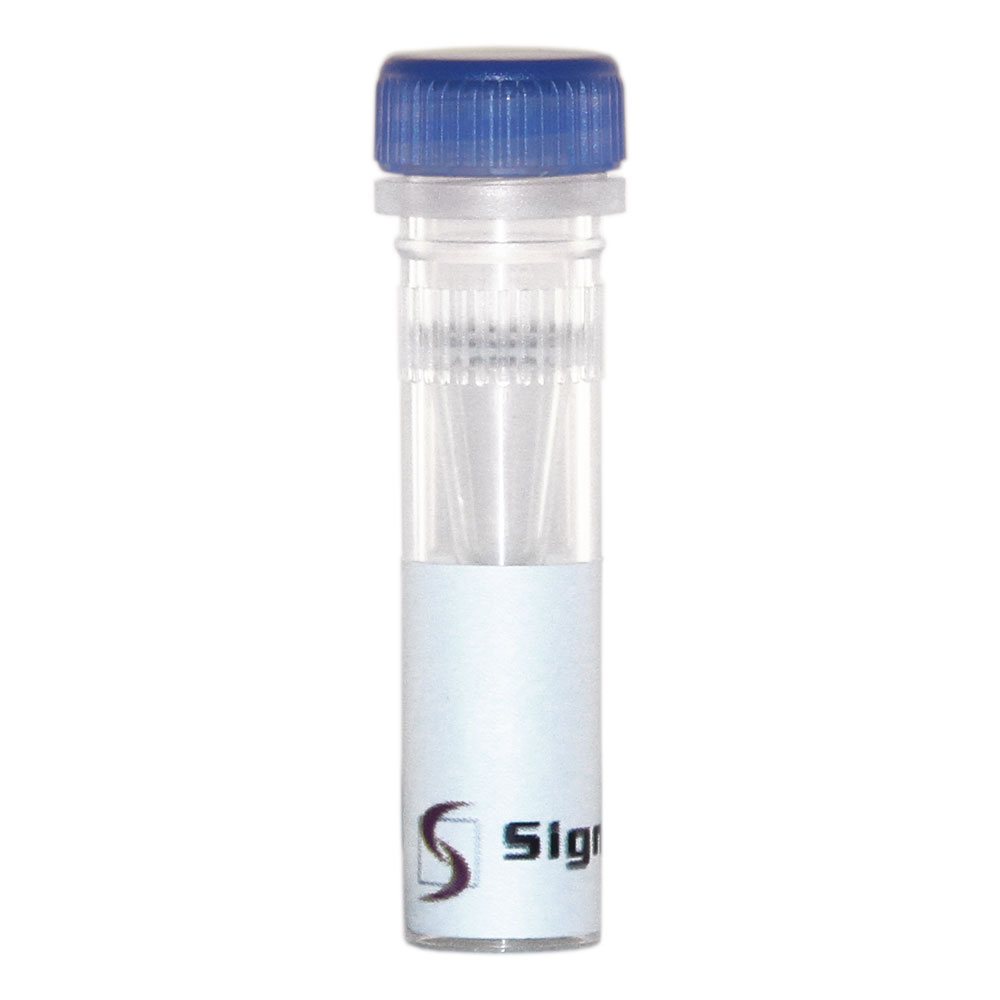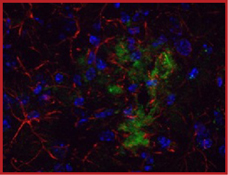
Anti-Amyloid beta
Rabbit Polyclonal Antibody
Catalog No. A06-563R
| Catalog No. | Pack Size | Price (USD) | |
|---|---|---|---|
| A06-563R-100 | 100 ug | $695 | |
| A06-563R-BULK | BULK | Contact Us |

Rabbit Polyclonal Antibody
Catalog No. A06-563R
| Catalog No. | Pack Size | Price (USD) | |
|---|---|---|---|
| A06-563R-100 | 100 ug | $695 | |
| A06-563R-BULK | BULK | Contact Us |
Overview:
Amyloid beta, often abbreviated as A-beta, is a protein that builds up in the brains of persons with Alzheimer's disease, collecting in clumps called plaques or senile plaques. While some researchers question whether beta amyloid is the cause of the dementia, most agree that it is involved in the disruption of thinking that is a hallmark of the disease. In some cases of familial Alzheimer's disease, mutations in genes for the proteins called the presenilins lead to increased production of amyloid. Researchers have been looking at how presenilin-1 in particular contributes to the excess buildup of beta amyloid. Presenilin-1 apparently acts to increase the activity of gamma-secretase, an enzyme that changes a normal protein (amyloid precursor protein or APP) into beta amyloid itself. Furthermore, presenilin-1 might be gamma-secretase.
References:
1. Frenkel D, N-terminal EFRH sequence of Alzheimer's beta-amyloid peptide represents the epitope of its anti-aggregating antibodies.; J Neuroimmunol, 1998 Aug 1
2. Bonaiuto C , Activation of nuclear factor-kappa B by beta-amyloid peptides and interferon-gamma in murine microglia;J Neuroimmunol, 1997 Jul
3. Suo Z, Alzheimer's beta-amyloid peptides induce inflammatory cascade in human vascular cells: the roles of cytokines and CD40; Brain Res, 1998 Oct 5
Specificity:
Recognizes the amyloid beta protein
Cross Reactivity:
Human and Mouse
Host / Isotype / Clone#:
Rabbit, IgG
Immunogen:
Amyloid beta antibody was raised against a synthetic peptide corresponding to the amino terminus (aa 1-14) of human beta amyloid conjugated to KLH using maleimide.
Purification:
Affinity chromatography
Stability:
Store at 4oC (add 0.1% NaN3) for several months, and at -20oC for longer periods. For optimal storage, aliquot target into smaller quantities after centrifugation and store at recommended temperature. For most favorable performance, avoid repeated handling and multiple freeze/thaw cycles.
Sample Data:
Immunohistochemistical detection of Amyloid beta using Anti-Amyloid beta (1:200) on TG APP23 mouse brain cortex frozen sections.

|
Sample Data:
Mouse Brain (Lane 1) and Mouse Spinal Cord (Lane 2) were run on a 4-20% gradient gel, and probed with Anti-Amyloid beta 1:1000

|
Sample Data:
Human Heart (formalin-fixed, paraffin-embedded) stained with Anti-Amyloid beta Antibody at 5 ug/ml

|
There are no related publications available for this product.
Neurobiology
STAY CONNECTED
Fax: 1-604-232-4601